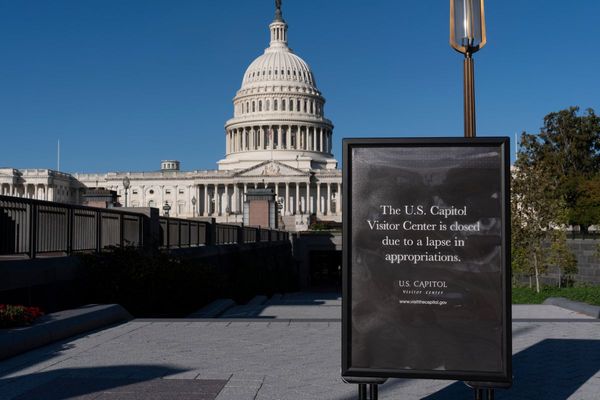
A famous Russian independent journalist called me for a quote after Russia launched airstrikes all over Ukraine. We have never met but she started begging for forgiveness for what her country is doing and may do to mine. Both of us are experienced reporters and used to covering hard stories and conflicts. We talked, and we cried.
So it begins: 5am. Kyiv, Kharkiv, Odessa, and all along the 2,000km-long Russian-Ukrainian border.
I am in touch with friends and colleagues all over the country who are awake and hearing the explosions. A possible attack on 24 February was mentioned by the government before. A few hours before, in the middle of the night, my husband – also a journalist, but not a war correspondent – decided to drive to the office of a friend who is on duty to pick up bulletproof vests “before it starts”.
What, where? I have reported on the war before, so I am used to the sound of shelling. I know that a loud bang, a missile, a military explosion can be heard from far away.
While trying to identify places and directions, it looked as if Russia was hitting military targets and military airports, which Ukraine’s president later confirmed. He also said Ukrainian air defence was working. Prior to this morning’s full attack, I heard from the military about a particular object to be targeted in Kramatorsk and near Kharkiv if things happen. This knowledge calmed me down. It led me to believe the army knew what to expect.
I was one of those who until the very last moment could not accept the notion of a full-scale invasion with airstrikes on our major towns. Putin’s speech was sickening, but still there was a logical, if fictional, justification for a limited Russian operation. The full-scale attack on Ukraine destroys even that.
I am talking to people, doing interviews, but in between I am packing and drawing water into buckets – just in case. I said to my husband, who has never been to war, do not go out on the balcony. He jokes: finally he will be allowed to smoke inside.
I run a media organisation, I am not supposed to do breaking news. But now I have to. It’s my choice but feels like a duty. I received messages from friends abroad, from as far away as Chile, asking should I really keep reporting. Just a day before I cancelled a prestigious fellowship in Vienna to go to the eastern frontline instead. I covered the conflict there for eight years. For me, there is only one place to be.
I read messages and receive news that other towns are under assault, and slowly more clarity emerges. Some of the news about Russian marines in Odessa turned out to be untrue. The Ukrainian president, Volodymyr Zelenskiy, who a few hours earlier recorded an emotional speech to Russian citizens urging them to stop the war, issued a new statement. He made a reference to a famous anti-military song from the second world war: “Do Russians Want War?”, and added, “The answer is on you”.
In the new one-minute statement he urged us to stay at home, don’t rush, but be strong.
At 6.30am, in between everything, I send a message to the people with whom we should have gathered for an event today – human rights defenders, some MPs and officials. It’s a one-word message: “cancelled”. Each of them is awake and we give and offer support. I feel very emotional.
We hear messages of possible air attacks. Yet the rest of the city remains calm. We hear the sound of police, but not military sirens.
The parochial continues. Journalists write that the subway still works, while many decide to drive to the western part of the country. The Ukrainian railways inform us that trains going west are running.
I told my Russian journalist friend about our mood. For years I have been reluctant to compare any dictator to Hitler, or any war to the second world war. The comparison, to me, seemed exaggerated, even vulgar.
But what other analogy is there? With no reason, in an act of pure madness, an old-fashioned air assault has been inflicted on a neighbouring country.
I said that to my Russian colleague, and tried very hard not to show how my voice was trembling. She asked for forgiveness again.
There is a famous phrase, “4am Kyiv is bombed”. Every Ukrainian and Russian kid knows it. That’s how the announcement of the German bombardment of Kyiv in 1941 sounded.
And here we are: 24 February, 5am Kyiv is bombed by Russia.
I am happy to hang up my call. I do not want my fellow journalist to hear me crying. And then my sister calls. I knew she would, it’s me the family and my mother turn to when there is trouble or they need to know what is going on.
For two-and-a-half hours from the start of the invasion, they were sleeping. I didn’t dare call them. I really didn’t want to. I wanted to prolong the peace for them, if only for a few hours.
Nataliya Gumenyuk is a Ukrainian journalist specialising in foreign affairs and conflict reporting and author of Lost Island: Tales from the Occupied Crimea
Join a panel of journalists, hosted by Michael Safi, for a livestreamed event on the Russia-Ukraine crisis. On Thursday 3 March, 8pm GMT | 9pm CET | 12pm PST | 3pm EST. Book tickets here







